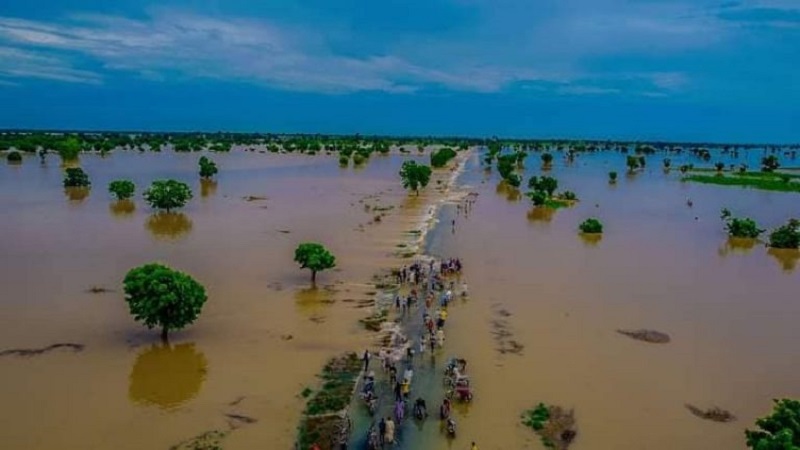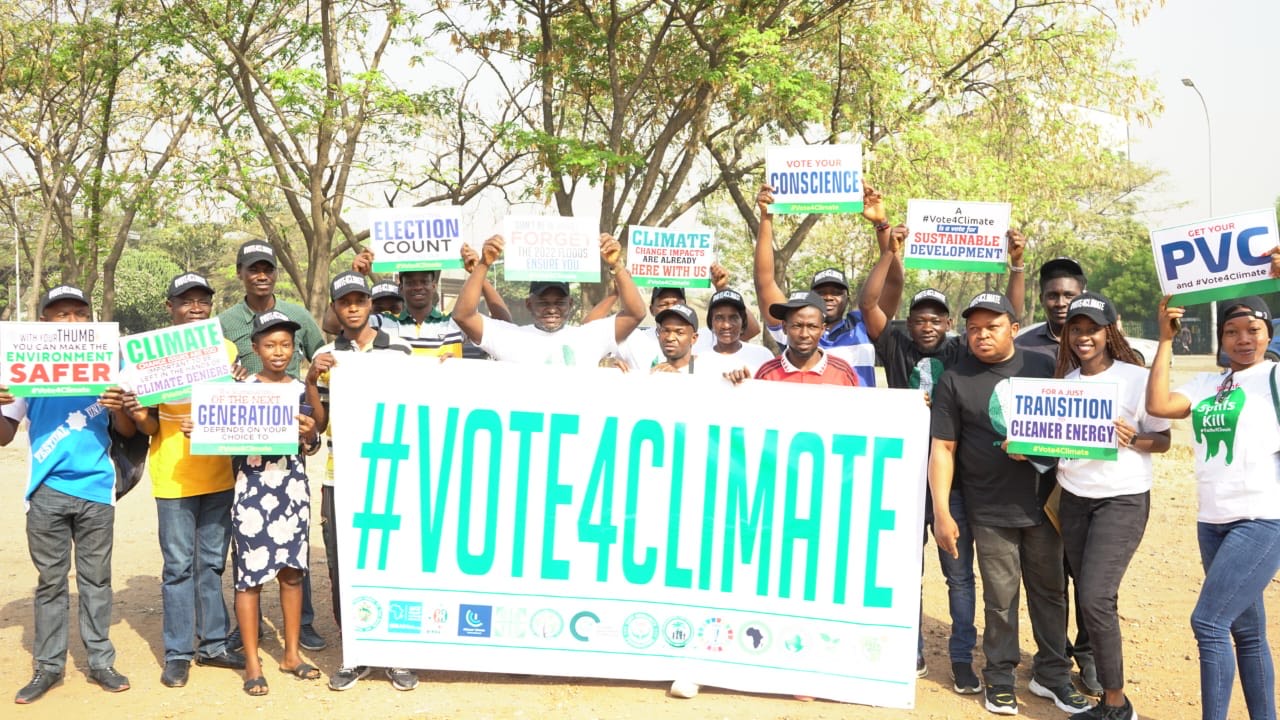
Last year, flooding across Nigeria killed over 600 people and displaced hundreds of thousands more.
Although climate change made this event more likely, the country’s leading presidential candidates have so far failed to take the issue seriously on the campaign trail.
A month away from general elections, Nigerian climate expert professor Chukwumerije Okereke told Climate Home that, in spite of the extreme floods last year, climate change was still not a decisive issue in the country’s elections.
The leading candidate in the latest polls, Peter Obi, has dismissed the importance of addressing the climate crisis, while the second place, Bola Tinubu, has supported coal expansion. Atiku Abubakar is polling in third place.
Okereke said that Obi was the only one to even visit flood victims.
On Twitter, Obi said the floods were “linked [to] climate change which is real”. In person though, he has dismissed climate change’s importance.
even in other parts of the nation, and help them sail through the turbulent times. I also call on the relevant authorities to intensify efforts to mitigate loses and casualties resulting from natural disasters.These unprecedented flooding are linked climate change, which is real.
— Peter Obi (@PeterObi) September 21, 2022
Asked about the issue on a trip to the US in September, Peter Obi said his government “will consider it in whatever we are doing but, quite frankly, I’m going to be aggressive in other areas”.
“You can’t be talking about climate change when people are taking cover from bombs,” he said. “I might be wrong”, he added.
This is a reference to a bombing campaign by Islamist group Boko Haram in the north of Nigeria.
But a study in the African conflict and peacebuilding review found in 2020 that climate change and environmental degradation has helped Boko Haram recruit and gain support.
And Benjamin Pohl, a researcher from the Adelphi think tank, said that conflict is “making adaptation harder just while climate change is already undermining livelihoods”.
“Both conflict and climate change impacts have huge consequences for human security, so people want and deserve protection against both,” he said.
Another leading candidate is former Lagos state governor Bola Tinubu, from current president Muhammadu Buhari’s party. He has promised to revive an abandoned coal mining project in Enugu state.
Meeting with voters in northern Nigeria, Tinubu said that unless developed countries deliver climate finance “we are not going to comply with your climate change”.
He described climate change as “a question of how do you prevent a church rat from eating a poisoned holy communion”. In this metaphor, Nigeria is the rat and the developed countries are those that are poisoning it.
Developed countries, which are disproportionately responsible for climate change, have failed to deliver the level of climate finance they promised. But developing countries like Nigeria face the worst of its impacts.
According to Okereke, Tinubu failed to understand that “if the West fails to pay up, Nigeria and other African countries will still be the ones that suffer the worst impacts of climate change”.
The third leading candidate Atiku Abubakar has not been questioned on the issue in public. But his campaign said on Facebook that “climate change is real” and that last year’s flooding confirms this.
The three candidates’ manifestos promise to reduce environmental pollution in the oil and gas producing Niger Delta region, address the burning off of gas as a waste product by oil companies and transition from fossil fuels to renewables.
But environmental campaigner Michael Terungwa told Climate Home that their manifesto promises are vague and their answers on the campaign trail suggest climate change is not a priority.

Polling carried out before the floods showed that two-thirds of Nigerians have not heard of climate change. No polling has been carried out since.
For some voters at least though, the issue has since risen up their list of priorities. Ken Eduzor’s home near the river Niger was one of those hit by floods, leaving his family homeless for weeks.
“This has made us realise that we must elect leaders who have plans to tackle flooding and other environmental issues as the election is drawing closer. It’s now about voting leaders who understand how to address climate issues,” he told Climate Home.
To be elected in the first round, the winning candidate must receive over 25% of the vote in at least 24 of the 36 states. Obi is currently polling at 23% of the vote, the Premium Times reported.
The first round will take place on February 25.